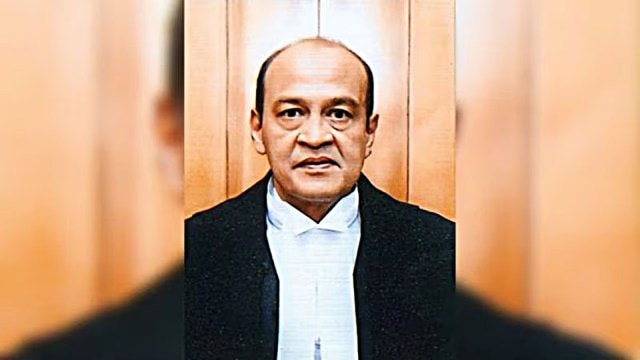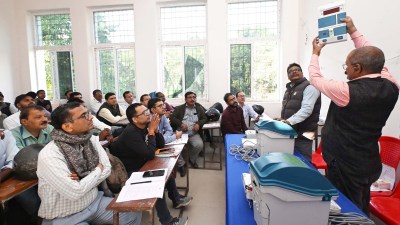Facing an impeachment motion following a probe into allegations of cash being found at his official residence in New Delhi, former Delhi High Court judge Justice Yashwant Varma moved the Supreme Court Friday,
calling its in-house inquiry mechanism that indicted him as “a parallel, extra-constitutional mechanism”.

“Primarily, the In-House Procedure, adopted via a 1999 Full Court Resolution to handle complaints against judges and preserve judicial independence while maintaining public faith, unjustifiably extends beyond the intended scope of self-regulation and fact-finding. By culminating in recommendations for removal from constitutional office, it creates a parallel, extra-constitutional mechanism that derogates from the mandatory framework under Articles 124 and 218 of the Constitution, which exclusively vest powers for removal of Judges of the High Courts in Parliament through an address supported by a special majority, following an inquiry under the Judges (Inquiry) Act, 1968,” Justice Varma’s plea states.
Story continues below this ad
The Indian Express had reported that on May 4, the then Chief Justice of India, Sanjiv Khanna, forwarded the report of the three-member inquiry panel of judges, along with the reply from Justice Varma, to President Droupadi Murmu and Prime Minister Narendra Modi. The report was prefaced with a recommendation to the President to initiate the process to remove Justice Varma.
Justice Varma’s plea underlines that the administrative or self-regulating procedures adopted by the Supreme Court “cannot circumvent or override the constitutionally protected tenure of High Court judges or imbue the Hon’ble CJI with unregulated authority to act as the arbiter of the fate of other judges of the High Courts/this Hon’ble Court”. Constitutionally, the Supreme Court does not exercise supervisory powers over High Courts.
In Justice Varma’s case, the top court had also issued a statement that the then CJI had “asked” the Chief Justice of Delhi High Court not to assign any judicial work to the judge.
Justice Varma has also raised questions over the Supreme Court decision to make public the purported video showing wads of burnt currency notes at his residence as being “ex facie disproportionate and violative of the law”. The plea states that this disclosure gave rise to a media trial, which the Supreme Court itself in its rulings had barred.
Story continues below this ad
“Unprecedented public disclosure of these unverified allegations via press release by this Hon’ble Court on 22.03.2025 subjected the Petitioner to media trial, resulting in irreparable damage to his personal reputation and career as a judicial officer,” the plea states.
Justice Varma also challenged the conclusions of the report by the three-member in-house judicial panel.
Appointed by the CJI on March 22, a week after currency notes were found at his official residence where a fire broke out on March 14, the panel comprised Justices Sheel Nagu, Chief Justice of the High Court of Punjab & Haryana; G S Sandhawalia, Chief Justice of the High Court of Himachal Pradesh; and Anu Sivaraman, Judge of the High Court of Karnataka. The panel found credence in the allegations against Justice Varma.
With the argument that the findings of the report are without due process and inadequate, Justice Varma, in his plea, has questioned every consequential action that flows from the report, including the CJI’s recommendation.
The matter is likely to be heard next week.
Story continues below this ad
Incidentally, Vice-President Jagdeep Dhankar, during a book launch on May 19, said that the Supreme Court’s in-house inquiry procedure “does not have any constitutional premise or legal sanctity but most importantly it will be inconsequential”.
Parliament is likely to introduce the motion for Justice Varma’s removal early next week. As per the constitutional provisions that deal with the removal of a judge and the Judges Inquiry Act, Parliament will have to set up a fresh panel for investigating the allegations against Justice Varma.









